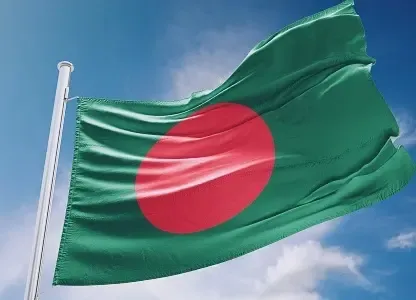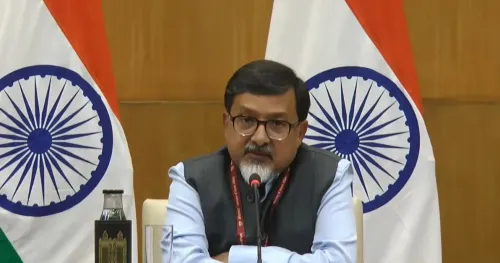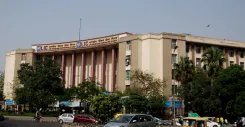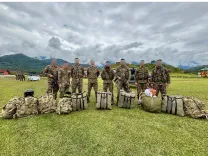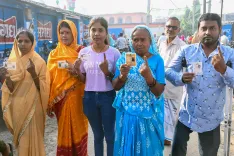Could LTTE's Old Routes and Dawood's Finances Form a Dangerous Drug Alliance?
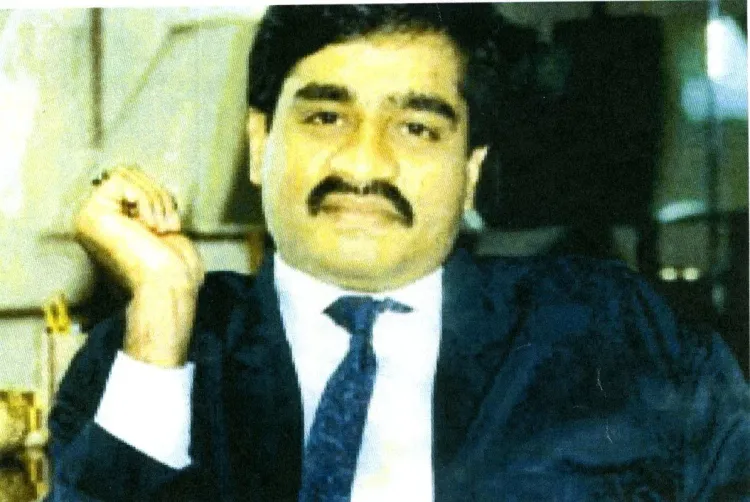
Synopsis
Key Takeaways
- Intelligence agencies are monitoring a potential alliance between the D-gang and LTTE.
- The D-syndicate is exploring routes in South India to expand drug operations.
- LTTE remnants may see this partnership as a chance for resurgence.
- The collaboration poses significant threats to national security.
- Historical drug trafficking by the LTTE has shaped their current strategies.
New Delhi, Nov 6 (NationPress) Intelligence agencies are expressing serious concerns regarding the Dawood Ibrahim syndicate seeking to utilize routes across South India to expand their drug operations. Recent intelligence reveals that the D-syndicate is leveraging the network of the LTTE to advance their drug trade.
Intercepts indicate that members of the syndicate are in contact with former Liberation Tigers of Tamil Eelam (LTTE) operatives and sympathizers in both Sri Lanka and India to facilitate their drug business. This development arises as the D gang faces significant challenges in its operations concentrated mainly in Maharashtra, Gujarat, and other northern states.
For the LTTE, which suffered a heavy blow from Sri Lankan forces, this situation presents an ideal opportunity.
Investigations led by the National Investigation Agency (NIA) reveal that the LTTE is attempting a resurgence.
The NIA has also discovered that some LTTE operatives who evaded capture are attempting to withdraw funds from foreign banks. The authorities suspect that these finances are intended to rejuvenate the organization.
A partnership with the D-syndicate could provide much-needed resources for LTTE cadres.
Even though their numbers are dwindling, a significant portion of LTTE operatives still exist but are hindered by a dismantled network, lack of leadership, and insufficient funds for a potential revival.
Collaborating with the D gang would supply the LTTE with necessary financial resources. With these funds, they plan to recruit new members and procure arms and ammunition.
An official remarked that under the current circumstances, a revival of the LTTE seems unlikely. Their ideology is largely considered 'extinct', and few would choose to embrace violence. Nevertheless, efforts to make a comeback continue.
For the D gang, this collaboration is advantageous as LTTE cadres are well-acquainted with the operational terrain. They possess invaluable knowledge of both land and sea routes, which would significantly benefit the D gang.
The D gang's expansion into the southern market poses a greater concern for intelligence agencies than the LTTE's revival. Historically, the LTTE has attempted drug smuggling as a means to fund their operations.
Approximately three years ago, they were involved in an unsuccessful drug and arms smuggling operation from Sri Lanka to India, which was thwarted when authorities seized a vessel near Lakshadweep. The investigation revealed that two Tamil Nadu natives, Suresh Raj and Soundarajan, were affiliated with the LTTE.
They acted under the direction of LTTE leaders operating from both Sri Lanka and Tamil Nadu, according to NIA findings.
At its peak, the LTTE dominated the southern drug market, maintaining control over gangs operating on either side of the Palk Strait.
The D gang is currently aiming to infiltrate this market with the assistance of the LTTE, which has been involved in drug trafficking since the 1980s, establishing Sri Lanka as a transshipment hub for Transactional Organised Crime (TOC).
The LTTE not only flourished in this region but also forged connections with operatives in countries like Canada, Norway, and other Western nations, channeling proceeds from the drug trade into legitimate businesses abroad.
The unification of the LTTE and the D gang could create a formidable threat and a significant security issue for authorities.
The D gang possesses the financial resources, while the LTTE brings extensive experience and expertise to the table. This alliance is mutually beneficial.
The D gang stands to gain full control over southern markets, facilitating drug transportation throughout India, while the LTTE would receive the funding it desperately needs.

